Breaking Barriers: Meeme’s Story of Survival and Hope
September 21, 2022
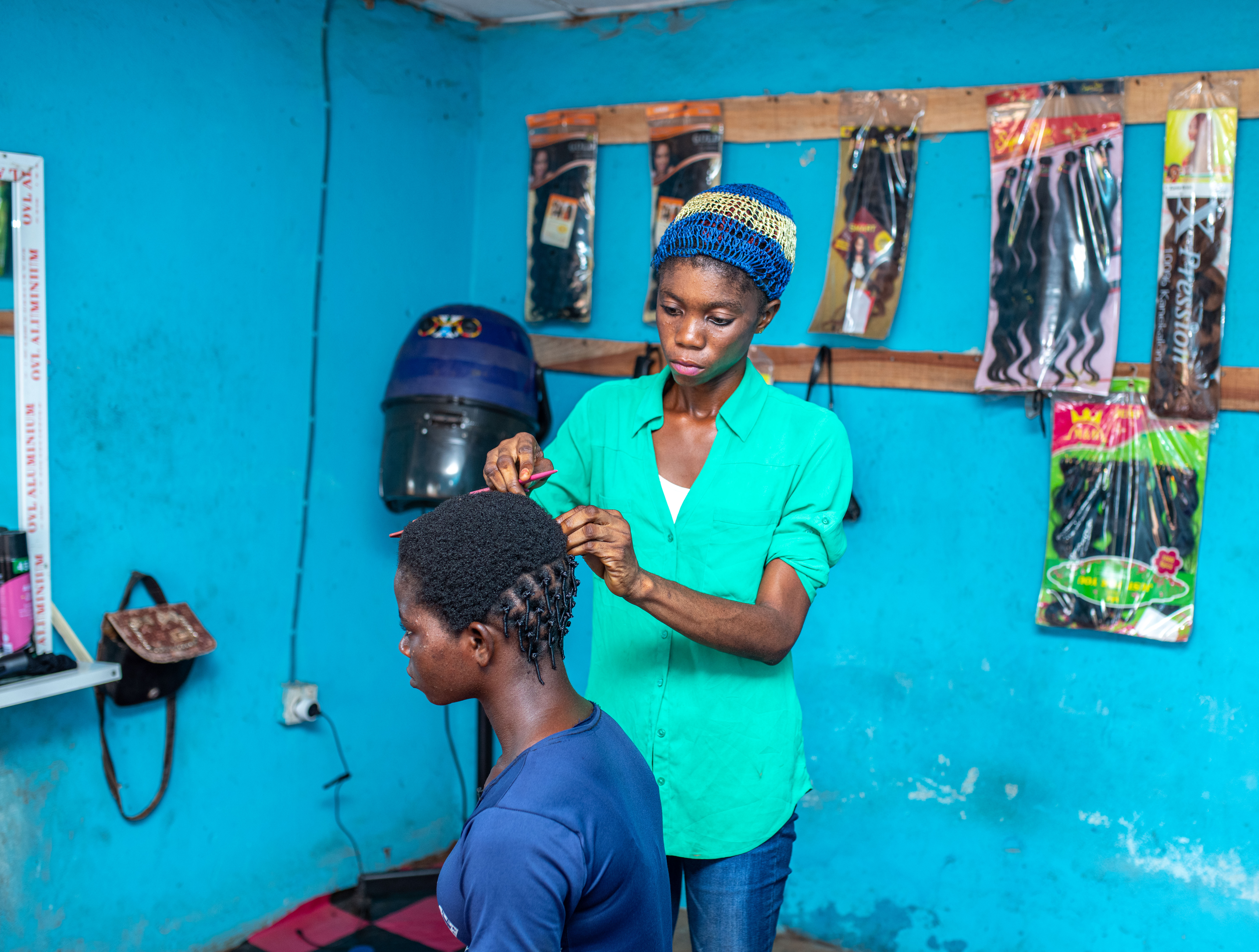
Meeme Deteren, a 35-year-old farmer from Kaseyo village
Meeme Deteren, a 35-year-old farmer from Kaseyo village, fled with her family after it was attacked and looted by herders. She arrived at Gbajimba, Benue State where she stayed in an Internally Displaced Persons (IDP) camp with her husband and three children. Meeme and her husband managed to get menial jobs on local farms, but this was not stable enough to support their family.
Millions of Nigerians have been impacted by the decade-long clashes between farming communities and nomadic herders who have been fighting over limited access to water and grazing land in the northeast and middle belt of Nigeria. This southward movement of herders in search of grazing land has resulted in violence with farming communities who accuse the herders of deliberately grazing cattle on their farmlands; while the herders claim the croplands are their traditional grazing routes. As a result, individuals such as Meeme were displaced from their traditional land; left with no homes or means of livelihoods.
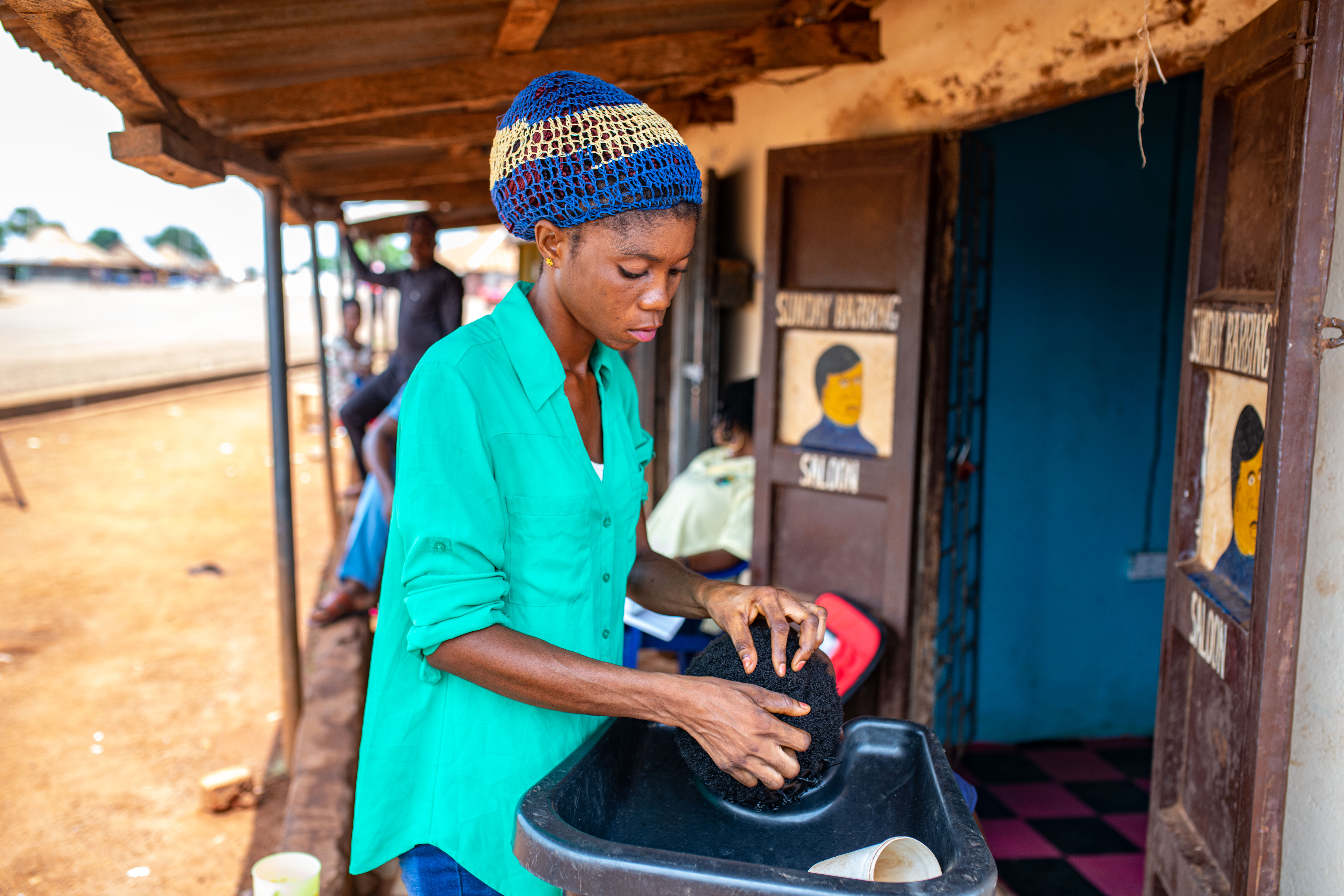
With support from UNDP Nigeria, UNHCR and FAO, Meeme was given an opportunity to learn new entrepreneurial skills at the Gbajimba IDP camp. Under the Human Security Trust Fund (HSTF) Project - Transitioning from Humanitarian Relief to Long -Term Development: Addressing the Herdsmen-Farmers Conflict in Nigeria, Meeme was trained on how to set up and manage a business. With these new business skills, she was able to set up her hair dressing salon. In addition to the training, Meeme was given kits and equipment to get her business up and running.
“I received a hair dryer, a hand dryer, washing basin, and a cash grant of 40,000 Naira” she recalled.

From the cash grant that Meeme received, she used part of it to start farming soya beans. “I used part of the grant I received to farm soya beans. I was able to harvest three bags, which I sold for 120,000 Naira.” she explained. “I used the extra money I made from selling the soya beans to rent a shop and buy other items, like mirrors, combs, hair attachments, hair creams, shampoo and other required materials.”
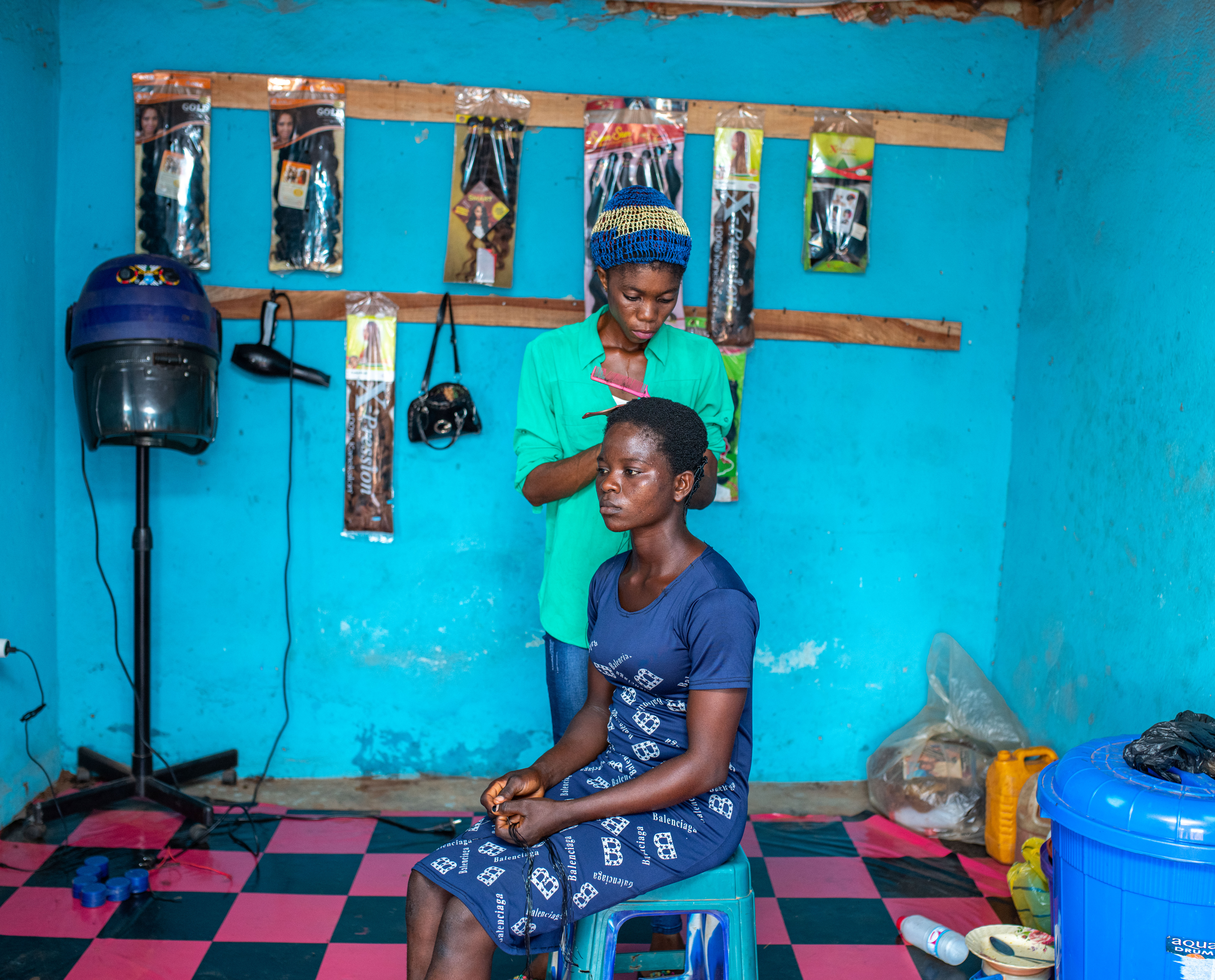
The hair stylist revealed that the earnings for her business is always low during the farming season because most people prefer to invest their income into farming rather than beauty services. She normally gets higher returns when the harvest season comes. “I hope to use the proceeds from my business to send my children back to school. They have not been able to resume school since we fled from our village due to the crisis. My dream is to become a better hairdresser and own a successful business in my community.
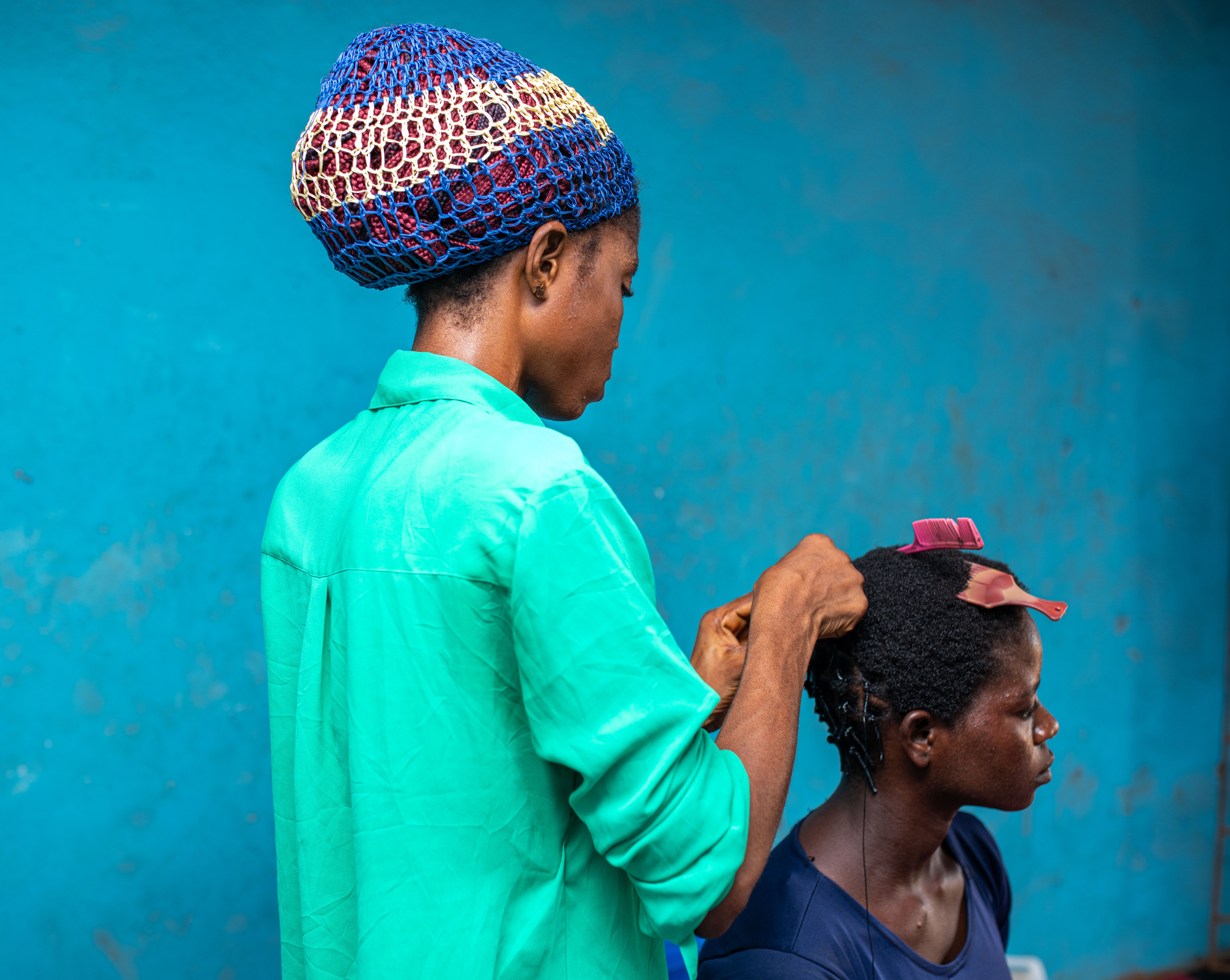
Meeme added, “the business has been helpful to me and my family. We no longer beg for food. With the money I make, I can buy food for my family. I am currently training two people in my salon. My hope is that they will be able to succeed on their own, just as l am doing. All they need is a little assistance.”
Her advice to others is that they should be patient and learn their craft. The right opportunity for them to succeed will always come.
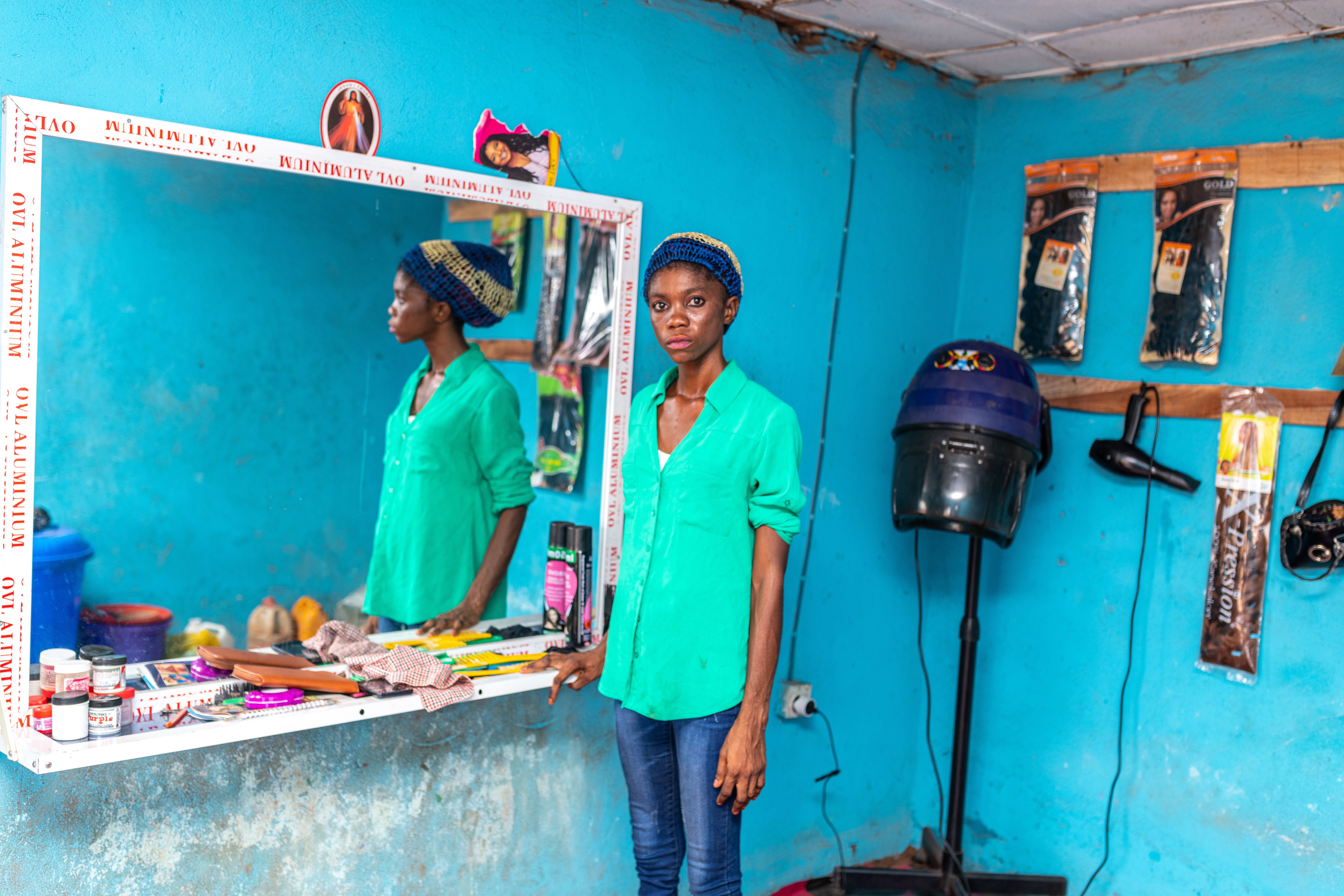
The Human Security Trust Fund (HSTF) Project - Transitioning from Humanitarian Relief to Long -Term Development: Addressing the Herdsmen-Farmers Conflict in Nigeria, has trained 400 beneficiaries in vocational skill in areas of their choice and has provided startup equipment to help them start small businesses. The project has created a conducive environment to rebuild sustainable livelihoods and a more robust local economy.
This project was implemented by UNDP, UNHCR and FAO in collaboration with community-based organizations – Foundation of Justice, Development and Peace, and ThriveAgric. The Benue and Nasarawa State Governments have embraced the Peace Project aimed at restoring peace and developing local capacity for conflict prevention and peaceful co-existence. UNDP and partners used the Human Security approach to support Benue and Nasarawa State Governments in addressing the farmer-herder conflict. Thus, hoping to restore long lasting peace while stimulating sustainable economic development with strong social cohesion between the conflicting groups.
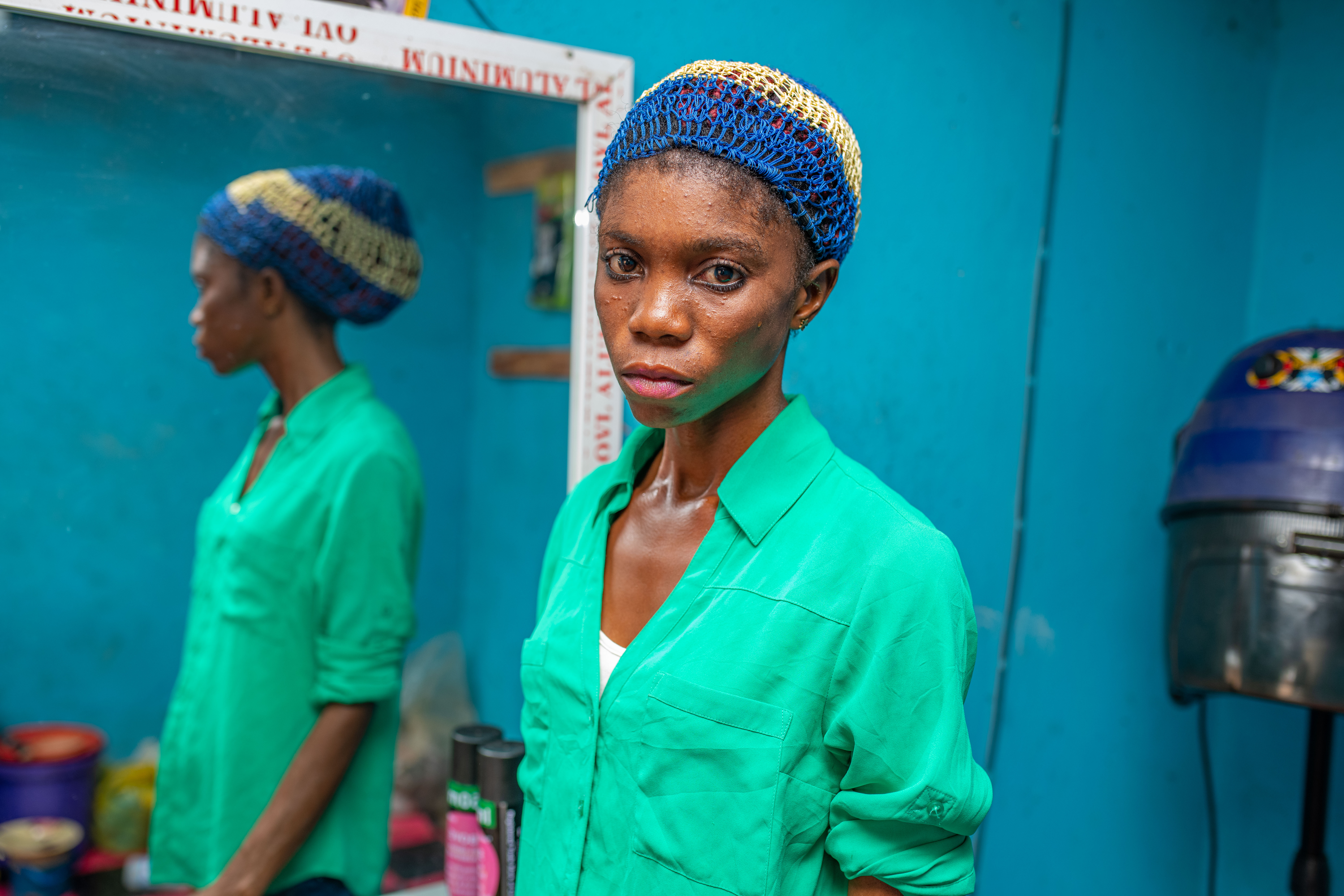
Meeme Deteren

 Locations
Locations


